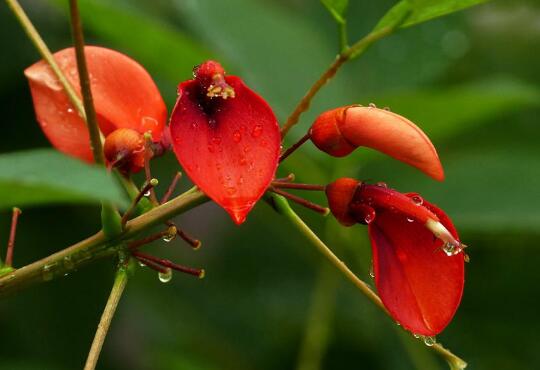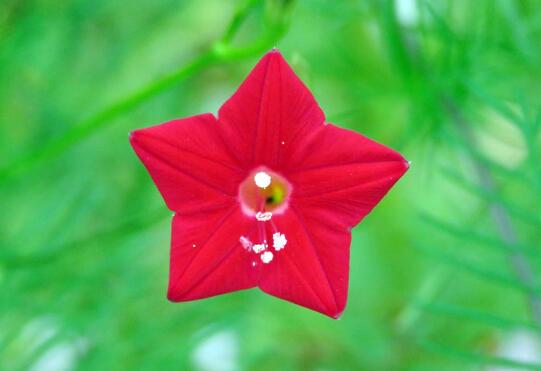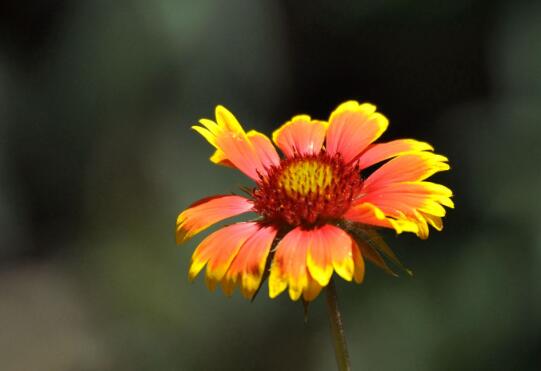How to propagate paulownia flowers, how to reproduce paulownia flowers / sowing propagation / cutting propagation
Paulownia flower is a kind of flower plant with high ornamental value, and it is cultivated in all provinces of our country. with more and more people breeding it, the problems about its reproduction have also caused people's relationship, about how to reproduce paulownia flower. What are the ways of propagation of paulownia flowers? Next, the editor will take you to learn about it.
1. How to propagate, sow / cut paulownia flowers

When it comes to how to reproduce paulownia flowers, in fact, it is mainly divided into two methods: sowing reproduction and cutting propagation, and these two methods are more commonly used, and the survival rate is also very high. As for how to operate these two propagation methods, there is a detailed introduction in the following, interested friends can learn about it.
Second, the propagation mode of paulownia flower.
First of all, no matter which propagation method we carry out, we need to choose the substrate first, which is a step to lay a good foundation and is very important. generally speaking, it is best to choose loose and fertile sandy loam as the substrate, which has good drainage and strong air permeability, which can make the plant absorb nutrients better and is not prone to the phenomenon of stagnant water in basin soil.
Sowing and reproduction
Seed reminder: before we sow and reproduce the paulownia flower, it is best to soak the seed in warm water of about 40 ℃ for 1-2 days, and then take it out when the seed begins to absorb water and swell, which can play a role in promoting the seed and allow it to germinate more quickly after planting.
Sowing method: before we sow the paulownia flowers, we should first apply an appropriate amount of base fertilizer to the potted soil, and then sow the seeds evenly on the soil surface. After sowing, we can water them after covering the soil with 1-2cm. When watering, it is best to choose the soaking method, because it is easy to wash away its seeds if directly watered.
Cuttage propagation
Cuttings selection: before we carry on the cuttage propagation to the paulownia flowers, we should first choose the cuttings, and the good quality of the cuttings will also affect the survival rate. Generally speaking, it is best to choose the branches that grow stronger and are free from diseases and insect pests as cuttings. In this way, the survival rate will be relatively high. If we choose the branches that look delicate, it is basically difficult to survive, so we should not be too casual in the choice.
Cutting method: in the propagation mode of paulownia flower, cutting propagation is a relatively simple method. First of all, we can use chopsticks to cut a hole in the substrate before cutting, and then insert the cuttings into 1 stroke 2, and then pour water thoroughly. This operation can avoid damage to the cuttings, which is very practical.
Breeding method of paulownia propagation mode of paulownia
Paulownia is a city flower of Quanzhou with colorful flowers and very good ornamental effect. it is often seen in parks, green spaces and scenic spots to beautify. Then how to raise paulownia? What is the way to reproduce? Next, let's take a look at the breeding methods and breeding methods of paulownia.
I. Culture methods of paulownia
The pot management of paulownia is relatively extensive, but the pot should be turned every other year before leaving the house, and the pot soil should be mixed with 2 parts of pond mud, 1 part of compost and 1 part of Hui bran ash. The plant needs to be re-pruned, leaving only 2 buds for annual branches less than 1 cm in diameter, and 3 buds for those with a diameter of more than 1 cm. After re-cutting, it will stimulate hidden buds and axillary buds to produce strong new shoots, which can make the trees blossom when they grow up. The mulberry branches and weak branches in the root should be peeled off in time.
Paulownia leaves the house to give sufficient light, summer can be a little shade. Watering is based on the principle of wetness between dryness and dryness. After pulling out the new shoots, apply cake fertilizer and water every 10 days. After flowering, in addition to normal fertilization, phosphorus and potassium fertilizer was applied twice to promote the development and enrichment of branches. Fertilization was gradually stopped after October. After entering the room at the end of October, put it in a sunny place to keep the basin soil slightly moist. Do not accumulate water in the basin, otherwise it is very easy to cause the roots of paulownia to be soaked and rot.
Paulownia is suitable for growing in the environment with sufficient sunshine, high temperature and good ventilation, and is not resistant to cold. It moves indoors in late October, and the overwintering temperature is about 15 ℃, not less than 4 ℃, and moisture should be controlled. In open field cultivation, young trees should be pruned regularly to form a round tree shape. Potted plants should choose larger pots, and large vats can be used for greenhouse potted plants. For branches that grow too long, heart-picking methods can be taken to control branch growth after flowering.
Second, the propagation mode of paulownia.
1. Sowing and propagation: after the seeds are fully mature from October to November every year, the fruits are mashed, washed with water and rubbed to remove the pulp. The pure seeds are selected by water, dried and stored until the middle or late January of the following year, and the seeds are taken out to accelerate germination. First soak the seeds in warm water for 3 hours, then mix in 2-3 times of wet sand, place it in the leeward and sunny place to warm and sprout, cover with plastic film to moisturize, often turn over, replenish water and keep warm. Seedlings can emerge 20-30 days after sowing. After emergence, remove the agricultural film and time seedlings.
2, cuttage propagation: generally use hardwood cuttings at the end of autumn, with small arch shed or sunny border to keep moisture and heat preservation. Generally, it can take root before freezing, and sprout and branch from March to April the following year. Urea was applied once a month after survival, 10kg was applied every 667m, and N-P-K compound fertilizer was applied after the Beginning of Autumn to promote seedling stem thickening and Lignification. In that year, the seedlings were as high as 50cm. Softwood cuttings can also be carried out in mid-and late June, with proper management and high survival rate, and annual strong and full branches can also be selected for hardwood cuttings in autumn.
The above is the introduction of paulownia breeding methods and paulownia breeding methods. Paulownia flowers are beautiful, can be planted as ornamental trees, and can be planted in their own courtyard if possible.
How long is the flowering period? what are the propagation methods of paulownia?
Chicken crown paulownia looks like a chicken crown, hence the name "chicken crown paulownia". As the florescence is longer, it is more suitable for road greening in the middle of the road. When is the flowering period of Caulownia frutescens? What are the breeding methods of Caulownia chinensis? Let's learn about it next.
1. Flowering period of Caulownia frutescens
Flowering period of Caulownia frutescens: from April to October.
Chicken crown paulownia is a butterfly-shaped Corolla, raceme. But it is different from the native paulownia in China, it does not blossom in the tower shape of radial symmetrical layer, but it blossoms in the shape of branches upward and forward. Its fruit is a pod, only a few centimeters long. There are generally 4-5 seeds in the pod, the seeds are chestnut brown, round bean-shaped, sparsely distributed in the pod.
2.Propagation methods of Caulownia coronata
1. Sowing and propagation: it is best to sow seeds as they are picked. Soak the seeds properly before sowing and sow them directly in the seedling bed. The loose sandy loam soil is suitable for the seedling bed soil, and the covering soil after sowing should be more than twice the height of the seeds, and pay attention to spraying water to keep moisture. The seedlings can emerge in about 10 days and transplant after 1 month when the seedlings grow to 20 cm.
2. Cutting propagation: cut off the semi-lignified branches, about 20-40 cm long, put them in a sand bed or loose seedling bed, keep them moist, take root and sprout in about 15 days, and become seedlings in 1-2 months. Long-branch cuttings are commonly used in coastal areas of South China, which can take root after 1-2 months.
The above is the introduction of the flowering period and breeding methods of paulownia. I hope it will be helpful to everyone. The flowers of paulownia are gorgeous, which is very suitable for viewing.
- Prev

How to grow five-star flowers, the planting method of five-star flowers / planting in spring and autumn
Among the reproduction methods of five-star flower, it is mainly divided into two methods: sowing reproduction and cutting propagation, in which sowing reproduction is a more commonly used one, and the survival rate is also very high, but if you want to plant successfully, there are many places that need to be paid attention to. about how to grow five-star flowers? What is the planting method of five-star flowers?
- Next

How to reproduce Chrysanthemum morifolium? how to reproduce Chrysanthemum morifolium by sowing
Chrysanthemum morifolium is a kind of flower plant native to tropical America, which was introduced to China and can be seen in many parts of our country. As more and more people breed it everywhere, people are more concerned about its reproduction. How to reproduce chrysanthemum? What are the breeding methods of Chrysanthemum morifolium?
Related
- Fuxing push coffee new agricultural production and marketing class: lack of small-scale processing plants
- Jujube rice field leisure farm deep ploughing Yilan for five years to create a space for organic food and play
- Nongyu Farm-A trial of organic papaya for brave women with advanced technology
- Four points for attention in the prevention and control of diseases and insect pests of edible fungi
- How to add nutrient solution to Edible Fungi
- Is there any good way to control edible fungus mites?
- Open Inoculation Technology of Edible Fungi
- Is there any clever way to use fertilizer for edible fungus in winter?
- What agents are used to kill the pathogens of edible fungi in the mushroom shed?
- Rapid drying of Edible Fungi

